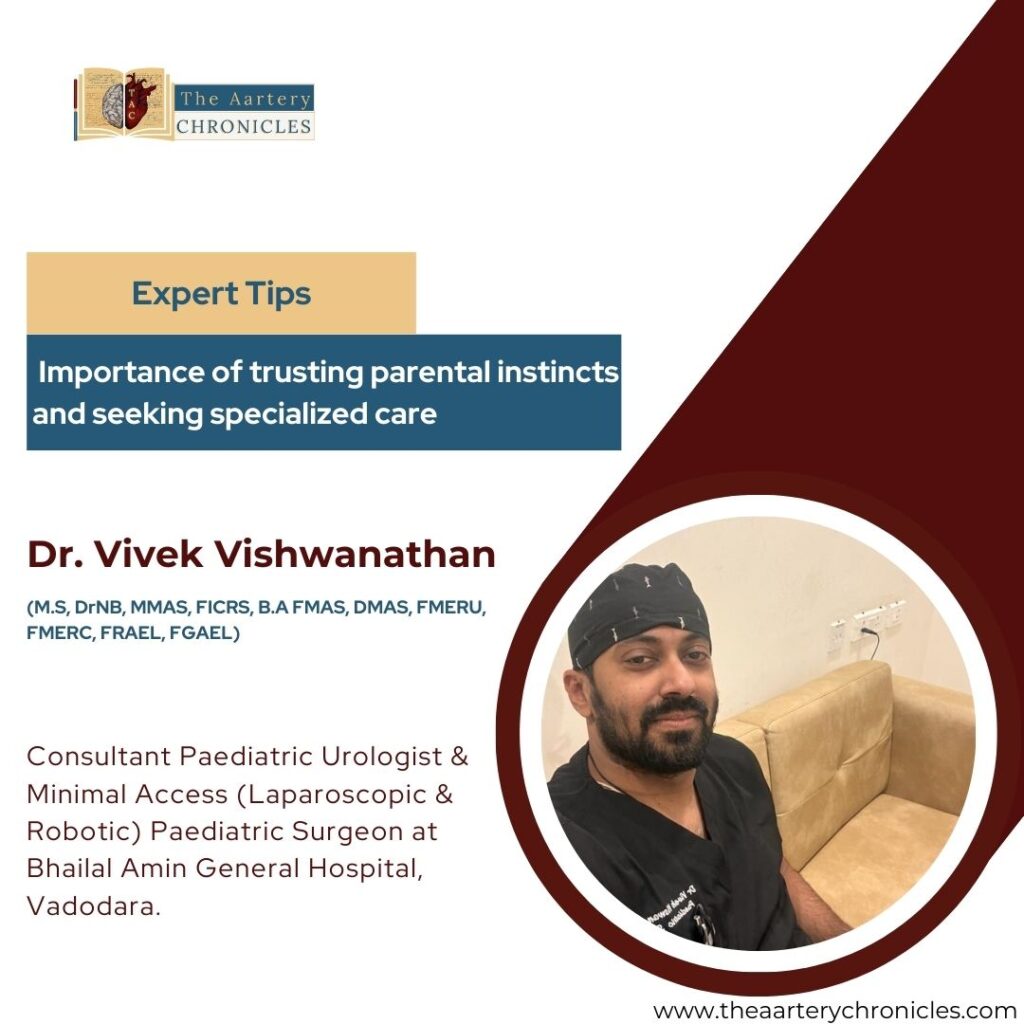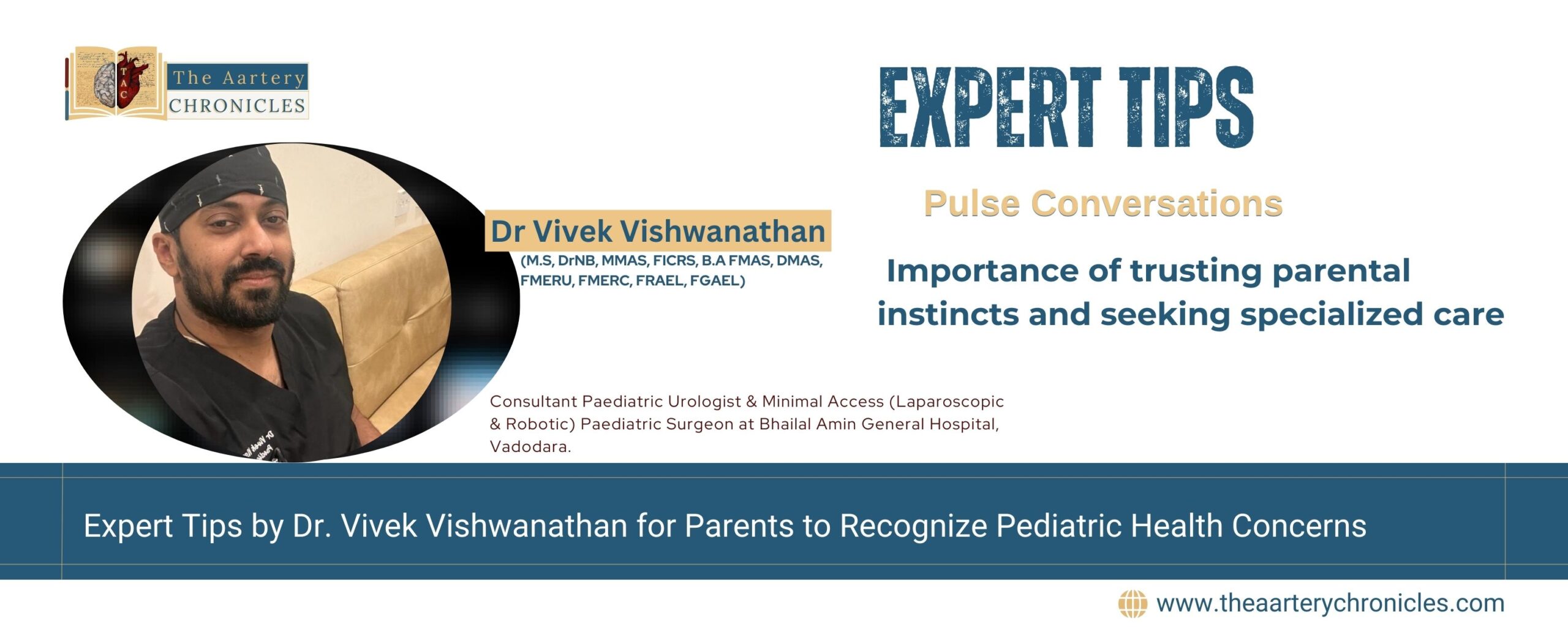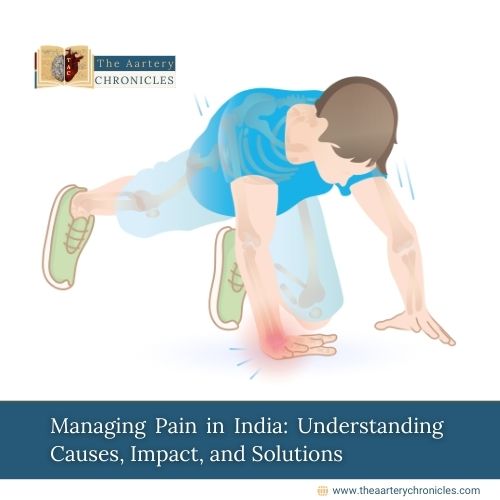

Expert Tips by Dr. Vivek Vishwanathan for Parents to Recognize Pediatric Health Concerns
Overview
In a recent conversation with The Aartey Chronicles, Dr. Vivek Vishwanathan, a pediatric urologist, and minimally invasive surgeon with extensive experience in laparoscopic and robotic techniques, shared valuable insights into importance of for recognizing Pediatric Health Concerns.
When it comes to the health of young children, parents are often the first to notice when something isn’t quite right. Dr. Vivek Vishwanathan emphasizes the importance of trusting parental instincts and seeking specialized care when necessary.
With a background in bariatric surgery and advanced training in robotic pediatric surgery, Dr. Vishwanathan has worked extensively at the Koki Lab in Dhirubhai Ambani Hospital, Mumbai, before returning to Vadodara, Gujarat, to practice exclusively in pediatric urology.
Here are some essential tips provided by Dr. Vivek Vishwanathan to help parents recognize and respond to potential health issues in their children.
1. Seek specialized pediatric care
Dr. Vishwanathan explains that if parents suspect their child might have a surgical problem, it is crucial to consult a pediatric surgeon rather than a general or adult surgeon. Pediatric surgeons are specifically trained to handle the unique needs of children, offering care that is tailored to pediatric patients.
“Children are not just small adults; their management is different,” explains Dr. Vishwanathan. Pediatric surgeons are better equipped to provide the specialized care that children need, which can lead to better outcomes.
2. Trust your parental instincts
Dr. Vishwanathan underscores the importance of parental instincts in monitoring a child’s health. He places a strong emphasis on the observations and concerns of parents, recognizing that they are often more in tune with their child’s behavior and well-being.
“I trust the mother’s instinct more than I trust my clinical skills,” says Dr. Vishwanathan. If parents feel that something is wrong, they should not hesitate to seek medical advice, even if initial assessments suggest otherwise. A second opinion is always worthwhile if doubts persist.
3. Pay attention to different cries
Understanding the nuances of a child’s cries can be challenging, but it is an important skill for parents to develop. Dr. Vishwanathan explains that a hungry baby’s cry is different from that of a baby in pain or discomfort. Mothers, who are with their children around the clock, are usually adept at recognizing these differences.
“The mother would know that the child has probably got some problem,” he notes. Persistent, unusual crying that cannot be soothed by feeding, comforting, or playing should prompt a visit to the doctor.
4. Watch for feeding issues
Refusal to feed is a significant indicator that something may be wrong. According to Dr. Vishwanathan, if a child consistently refuses to eat despite not being overfed, this is a clear sign that should not be ignored.
“There is no reason the child should refuse to feed every time they are hungry, which follows a routine interval,” Dr. Vishwanathan points out. Regular feeding is a key aspect of a child’s health, and disruptions in this routine could suggest a deeper issue.
5. Monitor sleeping patterns
Changes in sleeping patterns can also be a sign of underlying health concerns. If a child is not sleeping normally or is unusually restless, it may indicate discomfort or illness that needs to be addressed.
6. Be alert to high-grade fevers
A persistently high fever is defined as anything above 100 degrees Fahrenheit. It is a serious symptom that requires medical attention. Dr. Vishwanathan advises parents to consult a pediatrician or surgeon when a child presents with high-grade fever, as it could indicate an infection or other significant health issue.
Conclusion
Parents play a vital role in safeguarding their child’s health by staying attentive and trusting their instincts. Recognizing the early signs of potential issues, seeking specialized care, and responding promptly to concerns can make a significant difference in the well-being of their children. Remember, it’s always better to err on the side of caution and consult a healthcare professional if something doesn’t seem right with your child.









